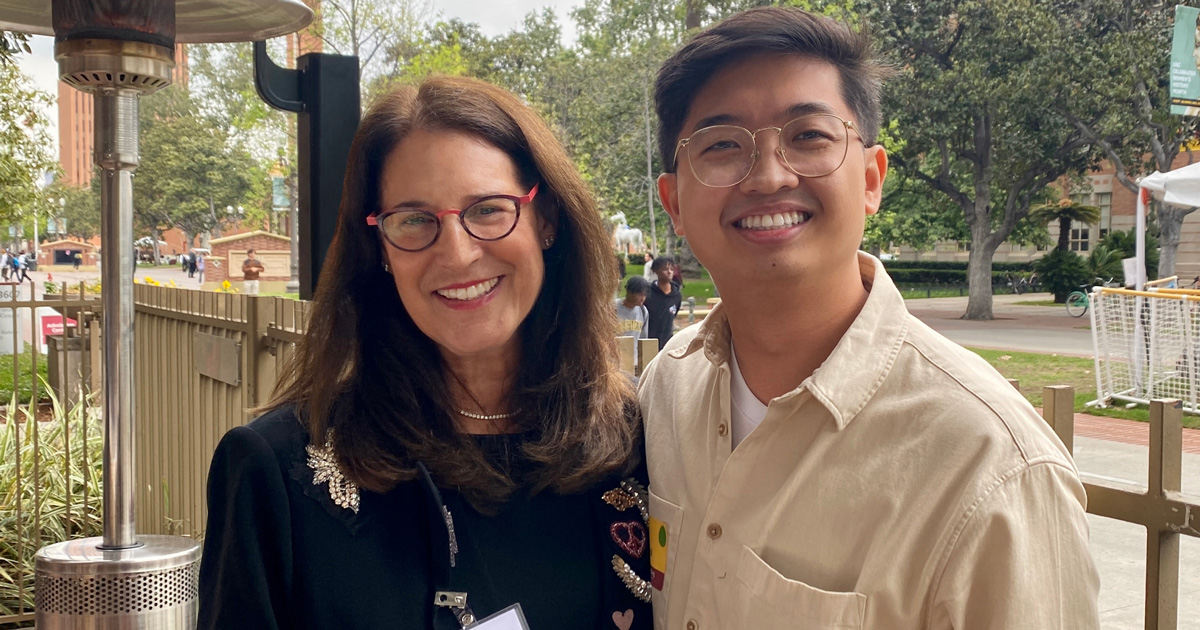

How to Attract Gen Z Talent
As employers confront the tightest labor market in decades, they need to understand the expectations of the youngest demographic entering the job market and the future of the workforce.
The current labor shortage has employers more eager than ever to recruit and hire recent graduates. But to do that, they need to understand that Gen Z recruits have different priorities than their predecessors. As a generation that came of age during a global pandemic and unprecedented social unrest, Gen Z has significantly different needs and expectations than any prior generation. Here are three key points to prioritize when communicating to this important audience.
1. Show who you are
Gen Z recruits don’t just want to know what your company does — they want to know who you are and what you stand for. Recent WE Communications Brands in Motion data finds that younger workers favor brands that speak out on societal issues — at significantly higher numbers than their elders. When Gen Z recruits visit your company website, it’s important that they can quickly discern where your brand stands on issues such as racial justice, LGBTQ+ rights and environmental sustainability. A recent survey by the National Association of Colleges and Employers finds that 71.8% of this year’s students — a percentage that has risen every year since 2015 — say diversity is important or extremely important. Social media and blog posts on these topics will not only communicate your brand’s values but will also keep recruits engaged and ensure that they stay on your site for more than three seconds.
Recruits are drawn to WE Global CEO and Founder Melissa Waggener Zorkin, who created a fiercely independent female-founded company 40 years ago and shares her inspiring story on our website. She also regularly sits down for one-on-one conversations with new WE people. WE’s social media also provides an important window into our culture. For example, WE’s LinkedIn page recently amplified WE’s Intern Takeover Day, when WE leadership and intern alumni welcomed our amazing new interns across our North American offices. The event focused on building community through networking, face time with leadership, office trivia and even a TikTok competition.
2. Communicate frequently
Zorkin meets exclusively with every North American intern at WE Communications. In these meetings, she provides lists of her favorite books and asks for advice on how the agency could improve. By making time to directly get to know the interns, she makes them feel heard and demonstrates how important their voices and points of view are to the agency and the industry as a whole.
When C-suite and senior leaders offer focused face time to the most junior people, the word gets out among their cohorts. Such attention is particularly important to Gen Z because, compared with older workers, they expect frequent communication from their leaders — especially on societal issues. The 2021 WE Brands in Motion report finds that 57% of Gen Z respondents — a higher percentage than any other age group — say they expect senior executives to communicate their personal positions on societal issues to their employees at least every three months.
For Gen Zers, constant communication is a way of life. As Pew Research notes, they are “digital natives who have little or no memory of the world as it existed before smartphones.” This group is in nearly constant contact with everyone in their lives — posting their new outfits and lovingly prepared meals on Instagram, swapping TikToks about deconstructed sushi and connecting with friends in group chats. It’s no surprise that Gen Z brings that always-connected mentality to work.
3. Forget Foosball
In pre-pandemic times, perks such as foosball tables and cold-brew coffee could help draw a younger worker to a company. But “work hard, play hard” doesn’t have the same ring when you’re working from your bedroom and logging longer hours than ever.
Even as employees start returning to the office, the pandemic and other societal issues have created a significant generational shift. Today’s younger workers are prepared to skip the kombucha on tap for more practical concerns — competitive pay, solid benefits, flexibility, mentorship and a clear career path.
As a generation who came of age during a time of high social unrest, Gen Z is suffering from higher anxiety and depression rates than other age groups. Gen Zers have learned the hard way that they need to look out for their mental health, and they expect employers to value their emotional well-being. They expect comprehensive mental healthcare benefits and healthy work-life balance. They want paid time off for mental health on par with any other health condition. They are more skeptical about capitalism and are not down with the 24/7 always-on work culture that many of their predecessors accepted.
They also want flexibility. A new report from Handshake, a platform that connects students and recent graduates with employers, reveals that this cohort wants the option to work remotely and the opportunity to meet their co-workers in person and build connections in real life.
Fortunately, employers are getting the message. WE’s Brands in Motion report finds that “employee well-being” is the top-rated issue across most sectors.
Gen Zers aren’t looking to radically restructure the workplace. They just want employers to listen to them, consider their priorities and weave them into the company’s policies and culture. To attract and retain this valued group in the workforce, employers should think deeply about what, how and when they communicate. Once employers follow through, they may realize that listening to Gen Z can reap important benefits for the entire organization.
The latest blogs from WE
Pride is Democracy
Overcoming the Lack of Diversity in Clinical Trials
Is Corporate Purpose Still Relevant in 2024?


